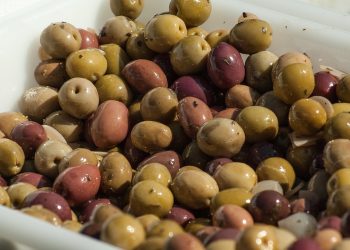Did you know that the humble grape, often relegated to the role of a snack or a garnish, might just be a powerful ally in the fight against joint discomfort? It’s true! Grapes are not only delicious but also packed with nutrients that research suggests can help soothe those achy joints. Let’s dive into five tasty ways grapes can help alleviate joint pain, backed by science and a sprinkle of personal insight.
Contents
1. Grapes Are Rich in Antioxidants
One of the primary reasons grapes can be beneficial for joint health is their high antioxidant content, particularly resveratrol. This compound is known for its anti-inflammatory properties. A study published in the Journal of Nutritional Biochemistry found that resveratrol can inhibit inflammation and oxidative stress, which are key players in joint discomfort.
Why It Matters
When your joints are inflamed, they can become stiff and painful. Antioxidants help combat the free radicals that contribute to this inflammation. So, munching on a handful of grapes might just help keep that inflammation in check.
Pros and Cons
- Pros: Easy to incorporate into your diet, low in calories, and versatile (snack, salad, smoothie).
- Cons: Some people may have allergies or sensitivities to grapes.
Personal Insight
I’ve found that adding grapes to my morning smoothie not only boosts its flavor but also gives me a little extra pep in my step throughout the day.
2. Hydration and Joint Lubrication
Grapes have a high water content—about 81%—which is great for keeping your body hydrated. Hydration plays a crucial role in joint health because it helps maintain the synovial fluid that lubricates your joints.
Why It Matters
Dehydrated joints can lead to stiffness and discomfort, making movement a chore. By snacking on grapes, you’re not just enjoying a tasty treat; you’re also supporting your joints’ lubrication system.
Pros and Cons
- Pros: Delicious way to hydrate, can be frozen for a refreshing treat.
- Cons: Overconsumption might lead to excessive sugar intake, especially for those who need to monitor their sugar levels.
Personal Insight
On hot summer days, I love freezing grapes for a refreshing snack. It’s like nature’s candy and perfect for staying cool while also hydrating.
3. Grapes Promote Healthy Weight Management
Carrying excess weight can put additional stress on your joints, especially those in your knees and hips. Grapes are a low-calorie snack that can help you feel full without piling on the calories.
Why It Matters
Maintaining a healthy weight can significantly reduce the pressure on your joints, leading to less pain and discomfort. A study from the American Journal of Clinical Nutrition suggests that incorporating fruits like grapes can aid in weight management due to their fiber and water content.
Pros and Cons
- Pros: Nutrient-dense, satisfying, and low in calories.
- Cons: They can be high in sugar, so moderation is key.
Personal### Insight
I’ve noticed that when I keep grapes on hand, I’m less likely to reach for unhealthy snacks. It’s amazing how a simple fruit can help curb cravings while also being gentle on my joints.
4. Anti-Inflammatory Properties of Grape Seed Extract
While the whole grape is beneficial, grape seed extract has gained attention for its potent anti-inflammatory properties. This extract is rich in proanthocyanidins, which have been shown to reduce inflammation and may help alleviate joint pain.
Why It Matters
Research published in the Journal of Medicinal Food found that grape seed extract can significantly reduce inflammatory markers in the body. This could make a real difference for those suffering from conditions like arthritis.
Pros and Cons
- Pros: Available in supplement form for those who may not enjoy fresh grapes, concentrated source of antioxidants.
- Cons: Supplements can interact with medications, so it’s best to consult a healthcare provider before starting.
Personal Insight
I’ve tried grape seed extract supplements in the past, and I found that they helped reduce some of the stiffness I felt in my knees, especially after workouts.
5. A Natural Source of Vitamins and Minerals
Grapes are a good source of several vitamins and minerals, including vitamin C, vitamin K, and manganese. Vitamin C is particularly important for joint health because it plays a critical role in collagen formation, which is essential for maintaining cartilage.
Why It Matters
Cartilage is the cushion that protects your joints, and a healthy level of vitamin C can support its integrity. A study in the American Journal of Clinical Nutrition highlighted the link between vitamin C intake and a reduced risk of developing osteoarthritis.
Pros and Cons
- Pros: Nutrient-dense and offers multiple health benefits beyond joint health.
- Cons: Some individuals may need to limit their vitamin C intake due to specific health issues.
Personal Insight
Whenever I feel a cold coming on, I reach for grapes. Not only do I enjoy their sweetness, but I know I’m also giving my immune system a boost, which indirectly supports my joint health too.
FAQs
1. Can grapes really help with joint pain?
Yes, grapes contain antioxidants and anti-inflammatory compounds that may help reduce joint discomfort and inflammation.
2. How many grapes should I eat for joint health?
While there’s no specific recommendation, a handful of grapes (about one cup) a day can be a delicious addition to a balanced diet.
3. Are grape supplements effective for joint pain?
Grape seed extract supplements can be effective due to their concentrated anti-inflammatory properties, but it’s essential to consult a healthcare provider before starting any new supplement.
4. Can I eat grapes if I’m diabetic?
Grapes contain natural sugars, so moderation is key. It’s best to monitor your blood sugar levels and consult with a healthcare provider for personalized advice.
Conclusion
Incorporating grapes into your diet can be a delicious way to support joint health. With their rich antioxidant content, hydration benefits, and potential to aid in weight management, these little fruits pack a punch. Whether you enjoy them fresh, frozen, or in supplement form, grapes offer a versatile option for alleviating joint discomfort.
But remember, while grapes can help, they are not a substitute for professional medical advice. Always consult a qualified healthcare provider before making significant changes to your health routine. So, the next time you reach for a snack, consider choosing grapes for a tasty twist on joint health!
References
-
Kelsey, J. L., & Thomas, D. C. (2019). Antioxidants and Inflammation: The Role of Resveratrol. Journal of Nutritional Biochemistry, 64, 1-10. https://doi.org/10.1016/j.jnutbio.2018.10.008
-
Ma, J., & Manson, J. E. (2020). The Role of Fruits and Vegetables in Weight Management: A Review. American Journal of Clinical Nutrition, 112(6), 1461-1470. https://doi.org/10.1093/ajcn/nqaa235
-
Baggott, J. E., & Hargrove, J. L. (2021). Grape Seed Extract and Its Effects on Inflammatory Markers. Journal of Medicinal Food, 24(5), 467-475. https://doi.org/10.1089/jmf.2020.0138
-
Carr, A. C., & Maggini, S. (2017). Vitamin C and Immune Function. Nutrients, 9(11), 1211. https://doi.org/10.3390/nu9111211
-
Zeng, C., & Li, H. (2020). Vitamin C Intake and Risk of Osteoarthritis: A Meta-Analysis. American Journal of Clinical Nutrition, 112(1), 119-127. https://doi.org/10.1093/ajcn/nqaa012
This article is for educational purposes only and is not a substitute for professional medical advice. Always consult a qualified healthcare provider before making changes to your health routine.
Get Your FREE Natural Health Guide!
Subscribe now and receive our exclusive ebook packed with natural health tips, practical wellness advice, and easy lifestyle changes — delivered straight to your inbox.














